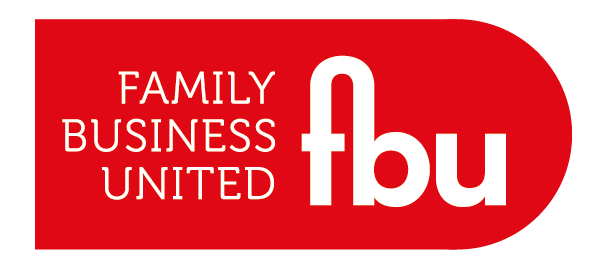But you will need to be ready to sweat to succeed
These days extolling the virtues of simple hard work is pretty unfashionable. However, practitioners in the art understand how it can pay off.
This article touches on the talent enhancing qualities of well focussed hard work and its vital importance to the success of the organisation.
How going the extra mile puts you ahead of the crowd
Standing out is one of the most important factors in success in any market. The source of your differentiation can be a complex equation.
It starts with a clear identification of market and customer type, an understanding of what they need and how your business will serve them. Whatever this set of customer solutions is, your business has to find a way to solve them distinctively, enjoyably and profitably.
How you organise your resources to do this is your business model design, from which will flow the tasks and resources needed.
If you succeed in doing this better than others, success is measured in growth and profit and that comes from:
- Being more attractive to your customers (premium acquisition rate)
- Being able to charge more for your solution (premium price)
- Being able to create them efficiently (premium process)
Imagine being able to beat the market at all three.
Most businesses don’t make it into any of these boxes, remaining firmly in the fourth; “not premium”. Most businesses don’t know which boxes they are in.
Free-loading in business is a myth. The successful businesses we have advised over many years have become so through hard work, and all of them have had opportunity to sharpen up a lot further.
Being in the fourth box may be fine of course, but its not exceptional, and it carries higher risk of failure.
Organisations as bodies
The reason SWOT is such a great strategic analysis tool is that it contains a presumption that organisations are the sum of their people and process and operate in the same way.
Looking at a person, their strengths, what they are best at, are the things they love and practice the most.
Weaknesses by contrast are typically the absence of strength; things they dislike doing and avoid practicing.
There is a mind body connection in strengths and weaknesses related to pay off in pleasure or pain.
Organisations are the same, and most long standing businesses are replete with strengths in doing what the market currently challenges them to do each day to get corporate pleasure (customer satisfaction and quick bill payment which is the root of positive cashflow), and avoid corporate pain (delayed payment through dissatisfaction or worse, non-payment).
Because a weakness is an absence of strength, weaknesses are not noticed until there is a test. In a human, if you break a limb and it is in a cast for a few months, you lose tone. It is not until the cast comes off and you try to use the limb you appreciate the weakness.
Business is the same. A sudden shift in the market or competition cruelly exposes weaknesses the leaders were probably unaware of, as the organisation struggles to respond.
The fit organisation
This metaphor of strength is a key part of the market winning strategy of hard work, as it is only hard work that brings exceptional ability to each part of the organisation. Equally hard work will be required to build the strengths needed to tackle any new opportunity or difficulty that arises.
Success comes from moving out of the comfort zone.
The juice of life lies outside the comfort zone
Pushing the boundaries, and creating new opportunities, or resiliences, when the resources are there is an essential self-discipline for long term success. If we leave it to the natural shocks to shake off complacency, we risk failure.
Work hard when the going is good.
Things to sweat
- Sweat the strategy – most businesses spend nearly 100% of time on operational management and zero on strategic planning and implementation.
- Sweat the model — we don’t see many leadership teams in possession of a visible business model, which means they have no way of testing its boundaries and innovating key elements. This should be a constant of leadership.
(Forget the business model, many businesses are really unclear even on who they ideally serve and why and waste a huge amount of effort doing the wrong things for the wrong customers.)
- Sweat the management team — effective co-ordination is essential to focus resources on key tasks and quality.
- Sweat every process — most can be shortened, innovated, automated, and by quite some way. Service businesses are particularly bad at this and pass on their inefficiencies in high prices which deliver poor customer value.
Of course this doesn’t matter if everyone is passing on their waste, but it matters a load when a digital innovator steals the market with the premium model and teaches your customers the true meaning of value.
- Sweat the future — what resources do you have that are scanning for changing customer needs and opportunities, and how are you getting ready to serve them to add to your business or prevent it declining.
- Sweat recruitment — we all know the right talent is crucial and can be hard to find. If you agree with the need to hire for attitude then my view is the right attitude includes the personal drive to create new competencies, as well as the right values for dealing with people.
There are plenty of other areas to consider. It doesn’t take much of an edge to make a difference, and as many organisations really struggle to change, a small edge can be sustainable. However to get an edge requires commitment to some discomfort and to taking on the hard work.
This article sounds pretty intense. It’s not really, I am just suggesting a sharpening of all the business senses. There is huge pleasure to be had when we look back at the results of a period of well focussed hard work.
Reviewing how far you have come and celebrating the results of hard work helps reset the drive and vision for the next stage of effort.
Meaning and purpose are important motivations in life. If the business is going well it provides meaning and purpose in different ways to so many people, and to their families and can be an important force for good in society.




